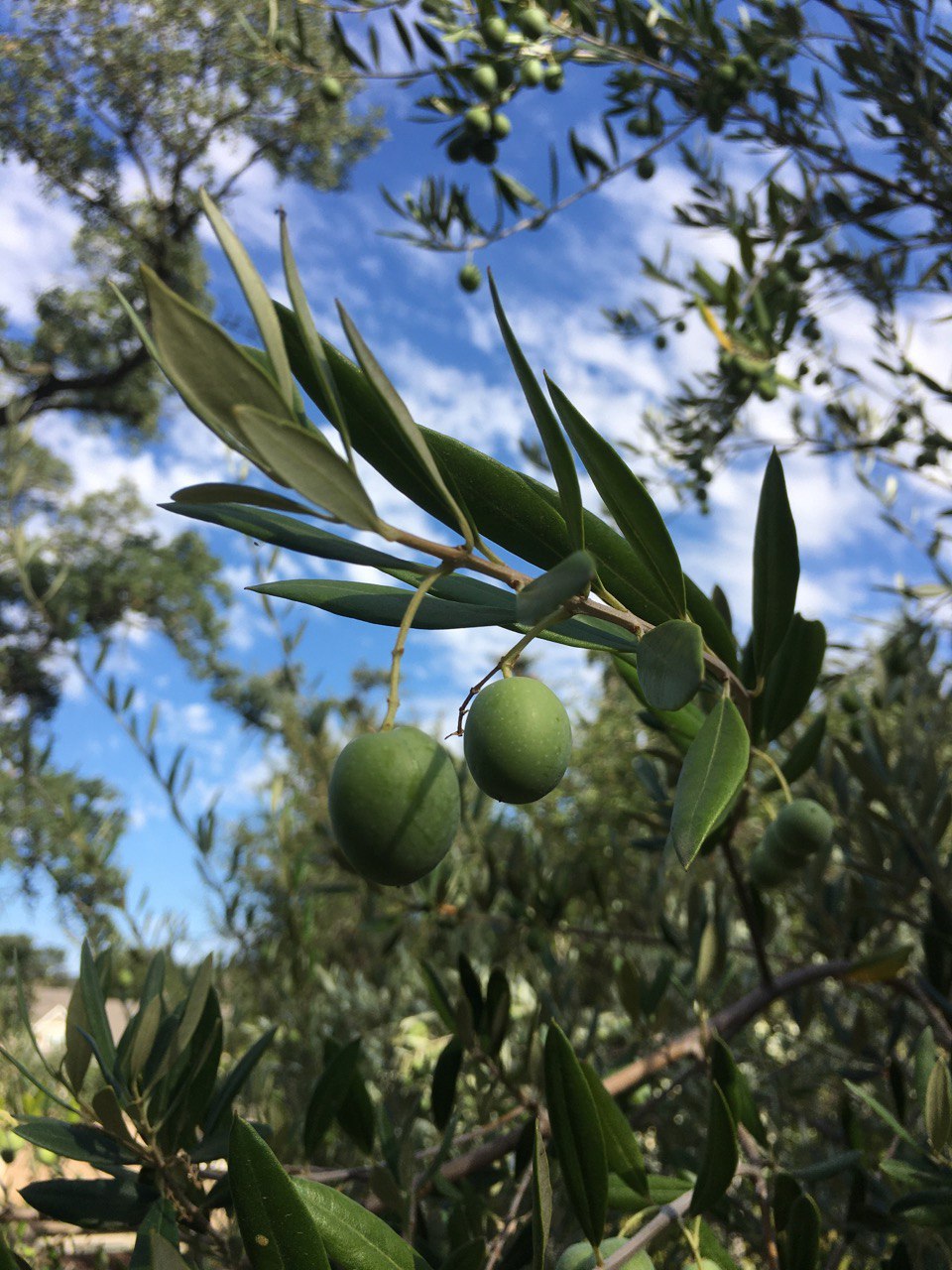Olive
Olive trees (Olea europaea) are iconic, hardy trees native to the Mediterranean region, although they are now cultivated in many parts of the world with suitable climates.These trees are known for their silvery-green leaves, gnarled trunks, and ability to thrive in dry, rocky soils.
They are particularly valued for their fruit (olives) and the oil produced from them, which is a staple in Mediterranean cuisine and has numerous health benefits.
Olive Oil
The oil extracted from the fruit of the olive tree is highly prized for its rich flavor and health benefits. There are several types of olive oil, including:
- Extra virgin olive oil: The highest quality, made from the first cold press of the olives, with minimal processing and no chemicals.
- Virgin olive oil: Slightly lower quality than extra virgin but still made from the first press.
- Olive oil: A blend of virgin oil and refined oil, often used for cooking.
Manzanillo Olive
In DeHotti farm we cultivated Manzanillo olive. The Manzanillo olive is a popular cultivar of olive tree that is known for its versatility and high quality.
It's grown primarily for both table olives and olive oil production.
The name "Manzanillo" comes from the Spanish word manzanilla, which means "little apple"-likely referring to the round, compact shape of the fruit.

The Manzanillo olive tree is generally a medium-sized, bushy tree with a spreading canopy. Leaves are narrow, long, and have the characteristic silvery-green color common to many olive varieties. Olives are medium-sized, round to oval, and typically have a smooth, firm texture. They start off green and ripen to a purplish-black color when mature. The fruit has a small pit inside.
DeHotti Farm brine-cured Olives
Brining is one of the most common and traditional methods of curing olives, used to reduce their natural bitterness and develop their unique flavors.
The brine process involves soaking olives in a saltwater solution, sometimes with additional seasonings, for a period of time that can range from a few weeks to several months.
There are a few variations on the basic brining method that can produce different flavor profiles and textures.
We use Sicilian-style to brine our olives, the mixture of salt water and vinegar.
After the first 2 months for the fermentation, olives remain in the brine for another 4-5 months. We use green-ripe Manzanillo olives from our olive trees.
